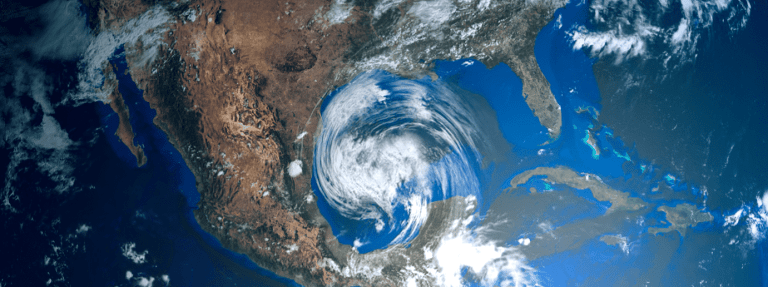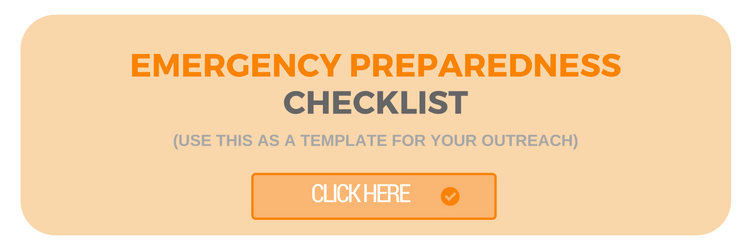You are viewing our site as an Agent, Switch Your View:
Agent | Broker Reset Filters to Default Back to ListHow to Prepare Your Clients for a Natural Disaster
July 22 2021
 After selling a new home, you encourage your clients to care for their new investments. You might suggest that they buy security systems and ensure they have the right homeowners insurance. But what about preparing for natural disasters? This is a growing concern for homeowners, especially with coastal flood-prone properties.
After selling a new home, you encourage your clients to care for their new investments. You might suggest that they buy security systems and ensure they have the right homeowners insurance. But what about preparing for natural disasters? This is a growing concern for homeowners, especially with coastal flood-prone properties.
From floods and earthquakes to wildfires and hurricanes, natural disasters can do costly damage to homes and belongings. In fact, natural disasters rack up an annual average of over $162.5 billion in damages. And while home insurance helps, it may not cover everything.
Before the next disaster hits, make sure your clients aren't left in the dark (literally and figuratively). Stay informed on what most people overlook when preparing for a natural disaster, and help your customers keep their belongings safe.
Here's a list to get you started.
1. Have a Plan for Your Pets
Most homeowners have a plan for how they'll move themselves and their families out of disaster zone, but not everyone plans ahead for their pets.
The Center for Disease Control and Prevention says it's imperative that pet owners follow evacuation orders and bring their pets with them in a disaster situation. The best way to protect four-legged friends is to build an emergency pet plan. Your Local Security has a detailed pet emergency resource page full of sample pet-specific disaster preparedness plans, guidelines for caring for a pet throughout a disaster, and pet supply kit lists.
2. Backup Electronic Data
From tablets to TVs to smartphones, Americans have dozens of electronic items that could be destroyed if exposed to the elements during a natural disaster. Though you can encourage your clients to store electronic items off the ground and plug them in to surge protectors, there's little guarantee that sensitive gadgets will be able to weather a storm securely. Fortunately, most electronics are replaceable. What can't be as easily replaced is the data they contain.
The general rule is to make three copies of data, store it in at least two different formats, and make sure one copy is stored somewhere safe. How-To Geek has a handy guide for handling data in natural disasters, which you can pass on to any clients who work with a lot of digital information.
3. Take or Safely Store Irreplaceable Goods
One-of-a-kind items valued for family significance will be impossible to replace if destroyed in a natural disaster, as will antique collectibles. Fortunately, experts at the Smithsonian have an entire Cultural Rescue Initiative, a global effort to protect and preserve cultural artifacts in disaster-ridden areas. The Smithsonian also shares tips on how to prepare these valuable heirlooms for an emergency.
Make sure your clients are apprised of the resources available for heirloom care before and after a disaster. The National Heritage Responders are a team of conservators that offer 24/7 advice and the Federal Emergency Management Agency (FEMA) has various tip sheets for salvaging flood- and fire-damaged family keepsakes.
4. Take Inventory of Specialty Items and Valuables
Custom woodworking tools, a studio stocked with photography equipment, or a library of antique books — these types of prized possessions are often incredibly valuable and expensive. They can also be the most difficult to secure in the event of a natural disaster.
While your clients may not be able to guarantee the safety of their specialty goods during a severe weather event, they can take steps to ensure easier replacement after the event is over. Advise your buyers to take an excellent inventory of every item, including pictures and serial numbers. They should also talk to an insurance professional about the possibility of putting an additional rider on their home insurance policy to cover high-value items.
5. Important Documents
In an emergency situation, few people remember to take care of important documents like birth certificates or property deeds. While some documents may seem inconsequential, the process of replacing official records and licenses can be taxing and time consuming.
FEMA has a great resource detailing which documents should be protected. With the right organization and prep work, it's relatively easy to save paperwork from disaster. They just need to be electronically copied and then stored in a safe container—like a waterproof bag, fireproof safe, or a safe-deposit box.
Passing Disaster-Preparedness Tips Along to Clients
You sold your clients their homes—now help them protect their investments. You can be a valuable resource to your buyers by sharing emergency preparedness tips with them. Use this email template and checklist to encourage your clients to take disaster preparedness seriously:
Dear [Client Name],
You've invested a lot in making your house a home, and we want to help you keep that investment safe from natural disasters. Attached is a checklist of 15 things to consider as you prepare for a severe weather event.
Best,
[Your Name]
With a real estate CRM, you can easily segment leads into lists (e.g., for those who will be/have been impacted by a storm) and email them with mass communication tools. For more details on how to do this, schedule a demo with us today.
To view the original article, visit the BoomTown blog.










